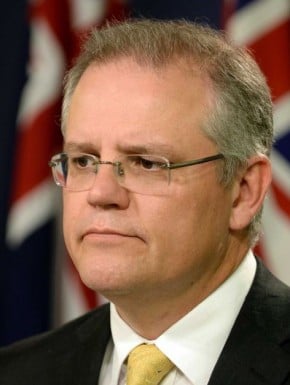

Immigration Minister Scott Morrison now has unchecked power to decide the outcomes that will affect the lives of asylum seekers and refugees coming to Australia.
Previous immigration ministers have had this power, but the passage of the Migration and Maritime Powers Legislation Amendment (Resolving the Asylum Legacy Caseload) Bill 2014 this week handed Morrison unprecedented, unchallengeable and secret powers to control the lives of asylum seekers.
Top Comments
They jeered and they hissed, "it cannot be done!" "You can't stop the boats!" they cried; "it's push factors!", they lied. Then comes this man, this Scott Morrison. He stopped the boats, it really is done. And noone has drowned, not even one.
"Morrison’s bill, now Australian law, states that: '… it is irrelevant whether Australia has non-refoulement obligations in respect of an unlawful non-citizen.'"
It should be noted that the principle of non-refoulement is customary international law, that is, all states are required to comply with this even if they are not party to the relevant Convention(s) or seek to exclude this through national legislation. That statement in Morrison's bill is absolutely not permitted under international law.
"It means that Australia is now no longer obliged to adhere to the UN Refugee Convention..."
Simply trying to exempt Australia from its obligations in the Refugee Convention (and, it should be mentioned, other conventions like the Convention against Torture which provide for non-refoulement) through national law is not allowed - as long as Australia is a party to the Refugee Convention, we are subject to its provisions, no matter what our domestic law says.
If it is ultimately passed, I can't wait to see who challenges the legality of this first.
I was wondering that - I didn't think that Australia could just legislate themselves out of international law - who would challenge it and how?
Unlike other countries (the USA springs to mind, but I'm sure there are others) international treaty obligations do not automatically become Australian law when the treaty is signed/ratified. The provisions of the treaty have to be passed into Australian law as normal legislation. It therefore IS subject to change to suit the whims of the current government.
The international community can (and possibly will) cause a stink over it, and the international courts may become involved if such provisions are ever used; but the fact that Australia has signed a treaty that says we can/can't/must/mustn't do something has absolutely no bearing on Australian domestic law.